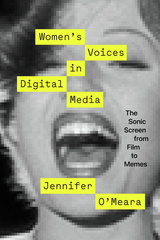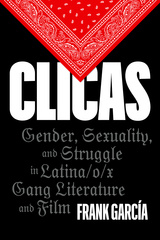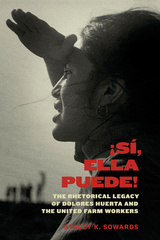Radiophonic Feminisms
Latina Voices in the Digital Age of Broadcasting
How Latina voices in commercial radio and podcasting subvert cultural norms and bring feminism to the fore of their work.
What does Latina feminism sound like in popular culture? Drawing on case studies of commercial radio programs and podcasts hosted by Latinas and oriented toward Latinx listenership, Esther Díaz Martín explores how Latina voices create female-specific aural spaces that interrupt the misogynist status quo in US mainstream media.
Radiophonic Feminisms focuses on radio/podcasting as a medium in which women find methods for resisting oppressive gendered cultural imaginaries. Through their specific articulations—that is, the quality of their voices—their music choices, and the soundscapes they construct, Latina hosts since the early 1990s have offered feminist responses to a cultural moment marked by the demographic changes brought on by the political economy of migration and the social changes wrought by media in the digital age. Drawing attention to the invisible antisexist work of creating sound, and to its reception, Díaz Martín bridges the epistemic insights of Chicana feminist theory and sound studies, enriching and further decolonizing our thinking about auditory meaning making.
Esther Díaz Martín is an assistant professor in the Department of Latin American and Latino Studies and the Gender and Women's Studies Program at the University of Illinois Chicago.
- List of Illustrations
- Note on Language
- Introduction: What Does Latina Feminism Sound Like?
- 1. Listening within Nepantla: A Chicana Methodology
- 2. Alicia Alarcón en Acción: Voicing Latino Working-Class Feminism on AM Talk Radio
- 3. Marlene Quinto, “La Vozalona”: Sounding Feminist Desmadre
- 4. Mamás, M(others), and Mamis: Convivencia in Latina Podcasting
- Afterword: Sound as a Point of Departure
- Acknowledgments
- Notes
- Bibliography
- Index







